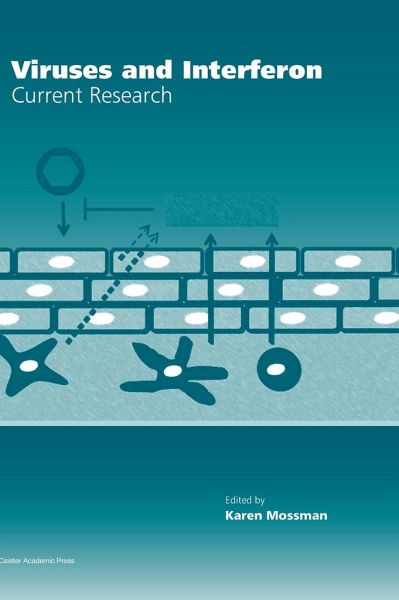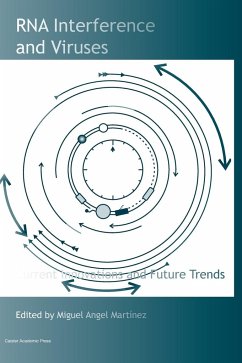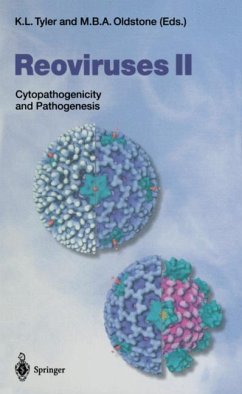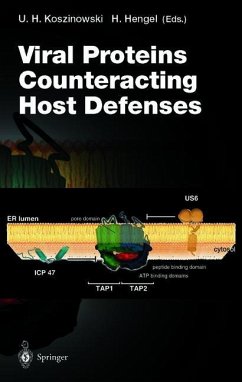
Viruses and Interferon
Current Research
Herausgeber: Mossman, Karen
Versandkostenfrei!
Versandfertig in 1-2 Wochen
241,99 €
inkl. MwSt.

PAYBACK Punkte
121 °P sammeln!
Interferons (IFNs) play pivotal roles in shaping the immune responses in mammals and are particularly important for the control of viral infections and cell growth, and immune regulation. These proteins rapidly induce an 'anti-viral state' in cells that surround infected cells. In order to survive, viruses have evolved multiple strategies to evade the anti-viral effects of IFNs. Elucidating the molecular and cellular biology of the virus-interferon interaction is key to understanding issues such as viral pathogenesis, latency, and the development of novel antivirals. In this book, a panel of i...
Interferons (IFNs) play pivotal roles in shaping the immune responses in mammals and are particularly important for the control of viral infections and cell growth, and immune regulation. These proteins rapidly induce an 'anti-viral state' in cells that surround infected cells. In order to survive, viruses have evolved multiple strategies to evade the anti-viral effects of IFNs. Elucidating the molecular and cellular biology of the virus-interferon interaction is key to understanding issues such as viral pathogenesis, latency, and the development of novel antivirals. In this book, a panel of international experts reviews the current hot-topics, producing a timely overview of this exciting field. The book opens with a chapter that comprehensively reviews the antiviral effects of extracellular double-stranded RNA, the 'viral toxin'. This is followed by chapters that review the properties of type I and type III interferons, and the role of interferon-stimulated genes. The next five chapters are devoted to understanding the diverse strategies used by clinically relevant human viruses to subvert host interferon responses. The closing chapter provides an interesting overview of the clinical application of interferon as antiviral and anticancer agents. Essential reading for every scientist involved in interferon or antiviral research and a recommended text for all virology laboratories.














